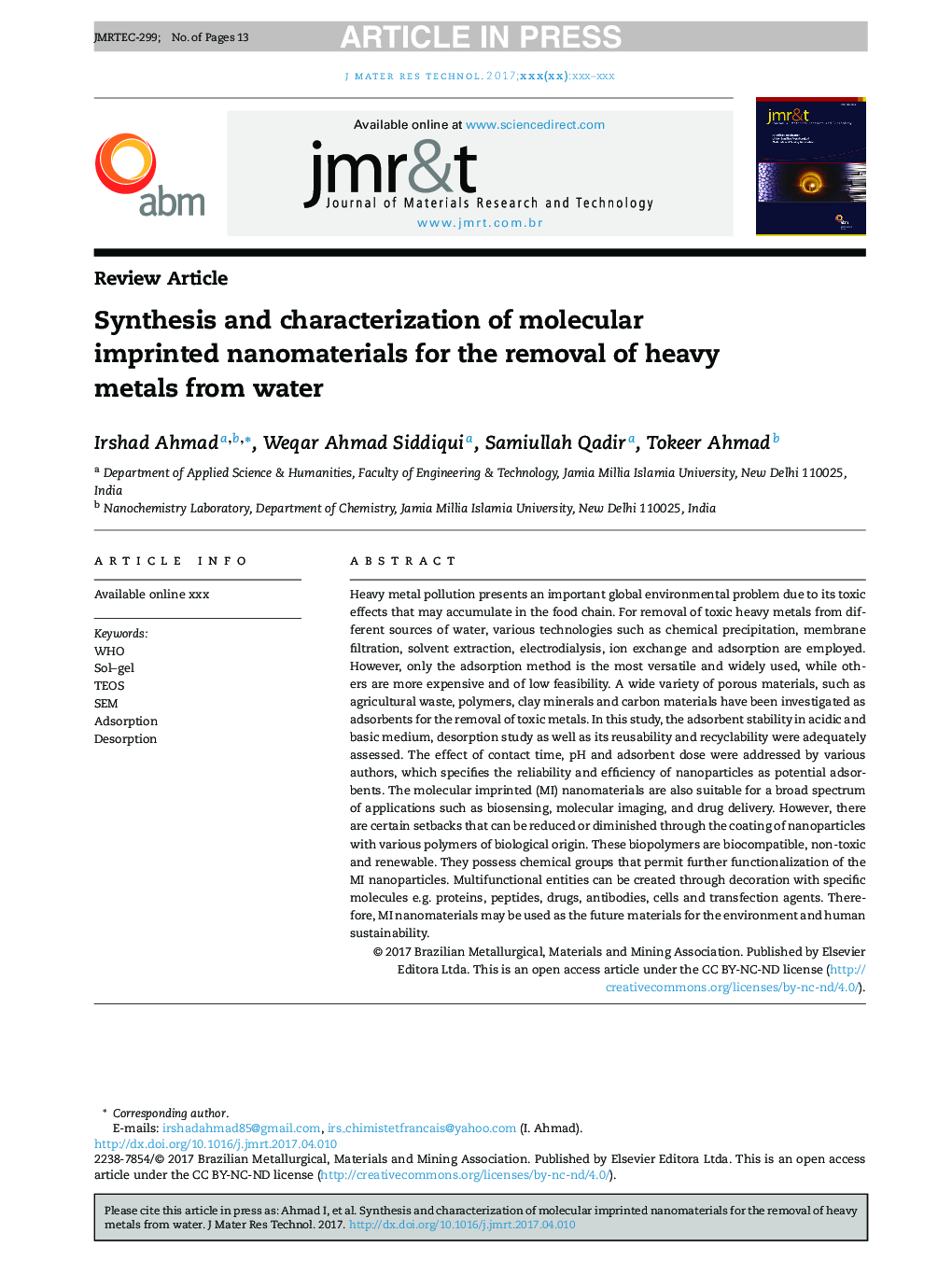| Article ID | Journal | Published Year | Pages | File Type |
|---|---|---|---|---|
| 8965310 | Journal of Materials Research and Technology | 2018 | 13 Pages |
Abstract
Heavy metal pollution presents an important global environmental problem due to its toxic effects that may accumulate in the food chain. For removal of toxic heavy metals from different sources of water, various technologies such as chemical precipitation, membrane filtration, solvent extraction, electrodialysis, ion exchange and adsorption are employed. However, only the adsorption method is the most versatile and widely used, while others are more expensive and of low feasibility. A wide variety of porous materials, such as agricultural waste, polymers, clay minerals and carbon materials have been investigated as adsorbents for the removal of toxic metals. In this study, the adsorbent stability in acidic and basic medium, desorption study as well as its reusability and recyclability were adequately assessed. The effect of contact time, pH and adsorbent dose were addressed by various authors, which specifies the reliability and efficiency of nanoparticles as potential adsorbents. The molecular imprinted (MI) nanomaterials are also suitable for a broad spectrum of applications such as biosensing, molecular imaging, and drug delivery. However, there are certain setbacks that can be reduced or diminished through the coating of nanoparticles with various polymers of biological origin. These biopolymers are biocompatible, non-toxic and renewable. They possess chemical groups that permit further functionalization of the MI nanoparticles. Multifunctional entities can be created through decoration with specific molecules e.g. proteins, peptides, drugs, antibodies, cells and transfection agents. Therefore, MI nanomaterials may be used as the future materials for the environment and human sustainability.
Related Topics
Physical Sciences and Engineering
Materials Science
Ceramics and Composites
Authors
Irshad Ahmad, Weqar Ahmad Siddiqui, Samiullah Qadir, Tokeer Ahmad,
